Browse our comprehensive product guides and documentation

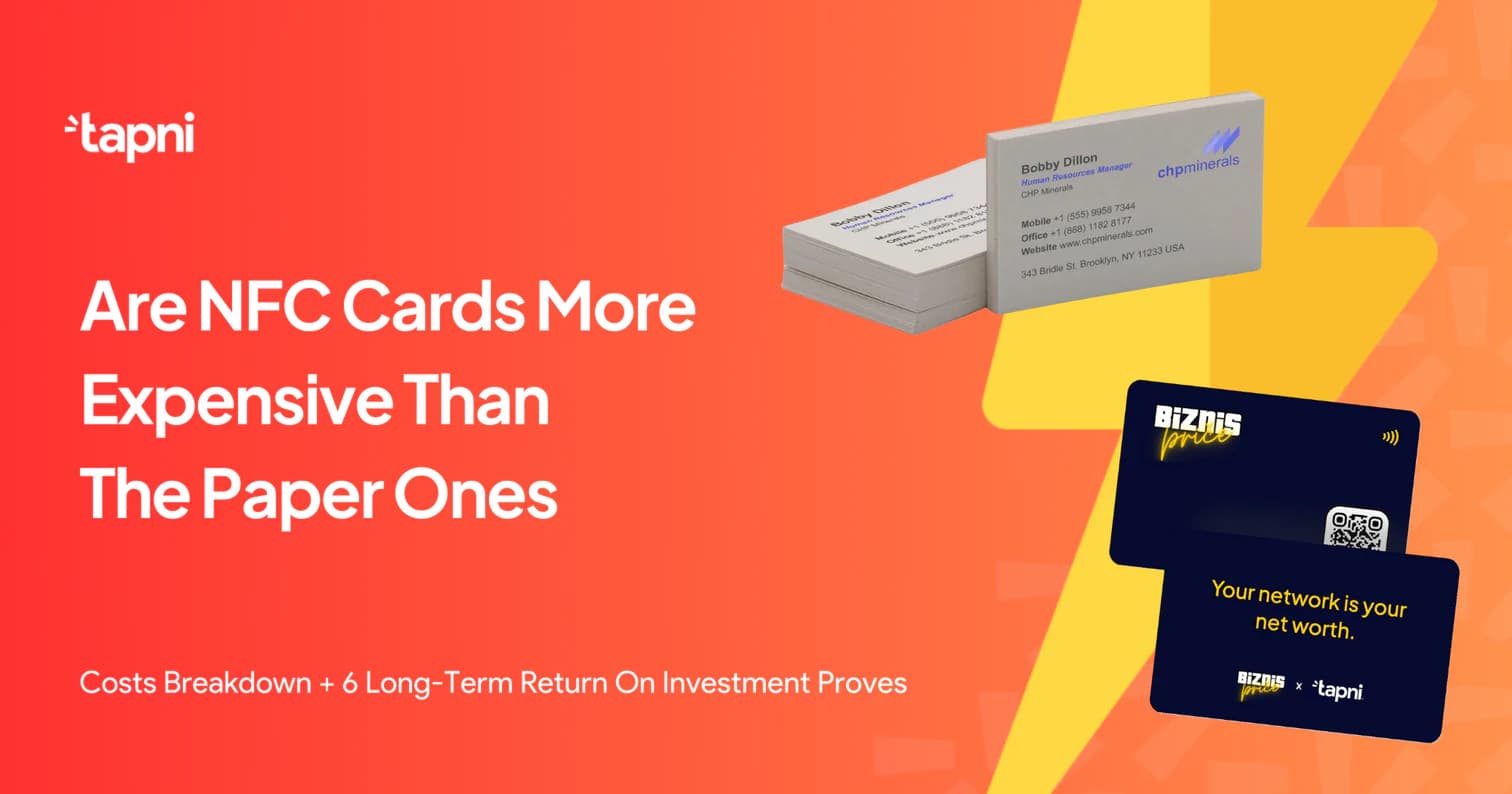
A business card is a small, printed card that contains essential contact information about a business or individual. Typically, a business card includes the person's name, job title, company name, phone number, email address, and company logo. They are an essential tool for professional networking, allowing individuals to share contact details quickly and efficiently during meetings, conferences, and other networking events.
Business cards facilitate networking by providing a simple way to exchange contact details. They are a staple at networking events, trade shows & conferences, and business meetings.
In this blog, we walk talk about different types of business cards, and check the actual costs between paper and digital business cards. The analyse you’ll find in this blog will explain you what kind of return on investment you’ll have by choosing a modern & sustainable version of business cards.
Want to smash your networking? Click here and create your free digital business card in 60 seconds 🔥
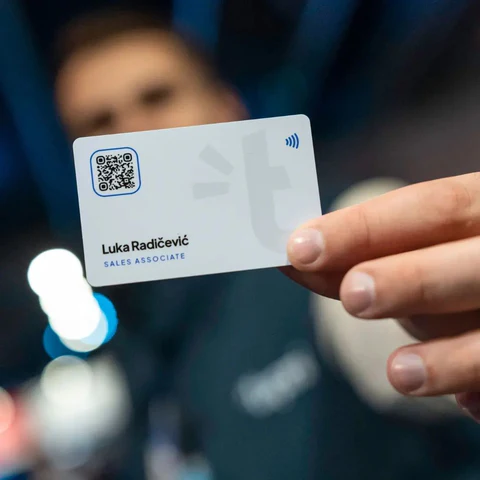
Business cards are important for several reasons, making them a vital tool for professionals:
1) They Are Important For Your Professionalism & Credibility:
Business cards convey a sense of professionalism and credibility, acting as a physical representation of your brand. They help you create a strong first impression and make a first step in the direction of valuable business partnerships, closed deals & new connections. 👔
2) They Are Able For Convenient Contact Sharing: Business cards offer an easy and convenient way to share contact information. At meetings, conferences, and networking events, business cards facilitate the quick exchange of essential details such as name, title, company, phone number, and email address. 🚀
3) They Promote Your Brand: Business cards are powerful for brand promotion. They often include the company logo, tagline, and other branding elements that reinforce the company’s image. A well-designed card can leave a lasting impression and aid in brand recall. You certainly had those situations: you receive a business card, and you’re just amazed by the material, details, quality of printing and so on. You’ll immediately create a conclusion that you’re dealing with a serious person and/or business, and that there’s something valuable in the products and/or services they’re offering. ↗️
4) They Can Help You To Improve Your Closed-Deals Rate: Business cards can help you to create and nurture business relationships, first & foremost because they provide a simple way to exchange contact details, often serving as a follow-up tool after initial meetings. If you go any event or a trade show, you’ll probably receive a lot of business cards, which then requires manual typing of all of those informations, importing/exporting data to some of the CRMs, and then creating the follow-up strategy. The pile of business cards can easily make you unmotivated and unsure of what you should do next. What if you forgot somebody important and miss a huge opportunity? 🤦
But don’t worry, we’ll come up with a proper solution just for you ‘till the end of this blog. 🤝

When choosing a type of business card, there are several common considerations for small business owners, sales consultants, or even and C-level executives. Leveraging small business AI tools can also help design and personalize cards that stand out. Despite differences in their roles, the fundamental aspects of what makes a business card effective are universally applicable. Here are the most common types of business cards:
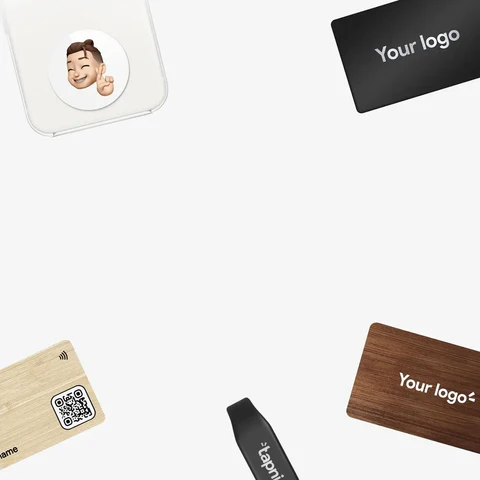
The market share of traditional paper business cards still dominates the market, but the adoption of NFC business cards is growing rapidly. 💹
Approximately 80% of the business card market is still held by traditional paper business cards, while the NFC business cards hold around 20% of the market but are experiencing a significant growth rate. 📈
Even though paper business cards are cheaper initially, they involve recurring costs for reprints, especially with frequent updates or staff changes. You can’t add, edit, and/or delete the info from your paper business cards. If someone in your team change its job role, you’ll need to print a hundreds or even thousands of new business cards for them. As the time goes on, the material of a paper business card will just get worse. ❌

NFC business cards, while initially more expensive, offer significant long-term savings and sustainability benefits. They are increasingly popular among tech-savvy businesses and professionals seeking modern, efficient networking solutions. As the market evolves, the adoption of NFC and digital business cards is expected to grow, further reducing the reliance on traditional paper business cards. ✅
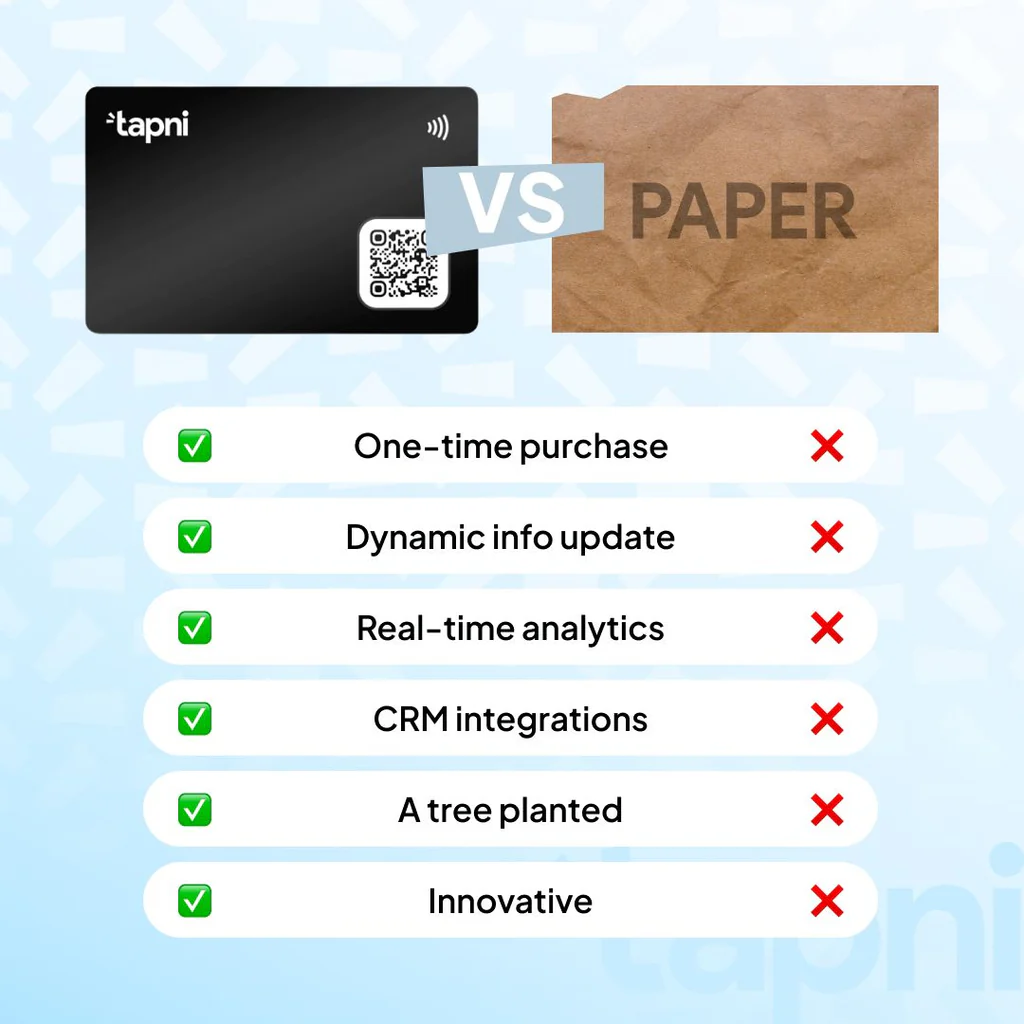
But for every statement, there must be some evidence. 🤷
So, let’s break the costs between paper & NFC Digital Business Cards for quantity of 1-50 (startups or micro organisations), 51-100 (small businesses), 101-500 (fast-growing companies), 501-1000 (international corporations), and 1000+ (enterprise businesses):
| Quantity | Paper Business Cards (yearly cost per employee) | NFC Digital Business Cards (5+ year investment) |
|---|---|---|
| 🔖 1-50 | $60-$3000 | $30-$1500 |
| 🔖 51-100 | $3000-$6000 | $1500-$3000 |
| 🔖 101-500 | $6000-$30 000 | $3000-$10 000 |
| 🔖 501-1000 | $30 000-$60 000 | $10 000-$20 000 |
| 🔖 1000+ | $60 000+ | $20 000-$40 000 |
If we took a short break regarding the costs comparison between paper & NFC digital business cards, there are several more factors we need to be aware of. 👇
First & foremost, you can’t track the usage of paper business cards. Of course, there’s a possibility to eventually set a QR Code on paper business card, and then buy a software that can track the number of scans of the QR Code, but such features are very limited, they do not provide you and your team with wider and advance features, and they will still require monthly or yearly subscription costs. ❌
So, you won’t be aware how the money you invested in paper business cards will be returned. ❌
On top of that, you can’t personalise the information you’re sharing with the QR Code and you can’t also personalise the QR Code - you’ll probably need another tool for that purpose. ❌
You won’t be able to have the database of all the users of business cards, and how they’re actually using them. ❌
Are they really collecting leads on those conferences or they’re just wasting company’s money? Which type of contact informations is the most popular one amongst others? What other people are using to contact your team members - LinkedIn, WhatsApp, Instagram or something else?
Also, you won’t be able to add paper business card to Apple or Google Wallet, and to enable another way of networking, digital one, which can be a true saver in situations somebody forgot their business card or they have run out of them. ❌
The paper cards aren’t reusable - if someone leaves the company, you’ll need to throw away their business cards. ❌
On the other hand…
With NFC Digital Business Cards the situation is much more transparent and obvious. 👌
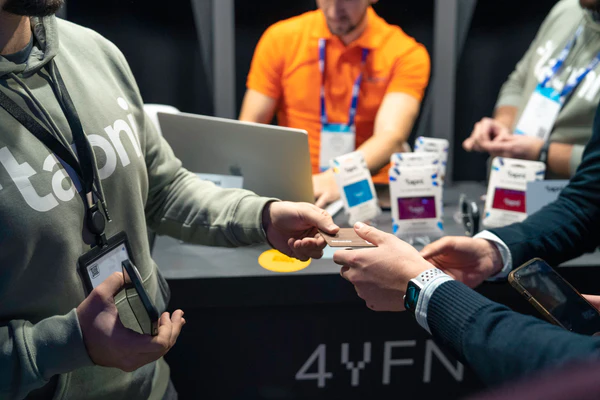
First of all, there’s no need for reprinting the cards - all the informations can be edited via Mobile or Web Application. For example, if you have changed your phone number, email address, or if the company has changed it’s website domain, or you were promoted to a new exciting role, you’ll be able to change the info quickly, and all those changes will be updated to the NFC card right away.
Additionally, you can rely on NFC Digital Business Cards because:
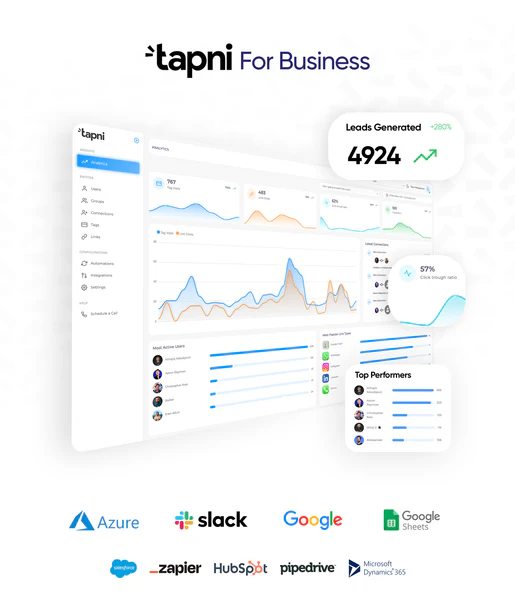
All mentioned is the reason why NFC business cards are becoming more popular due to their numerous benefits, including instant information sharing, eco-friendliness, updatability, interactivity, and long-term cost-effectiveness. Big brands like Nike, Starbucks, and Amazon leverage similar technologies to enhance customer engagement and operational efficiency. As more companies recognise the advantages of NFC cards, their adoption is expected to continue growing, making them an essential tool for modern networking and business interactions.
Paper business cards cost between $1.5 and $2.5 each, including shipping and design time. Annual cost per employee for paper cards ranges from $40 to $80. For larger companies (500+ employees), yearly costs can range from $20,000 to $35,000.
If we look at annual costs per employee:, we’ll see that:
On the other hand, sharing of a digital business card costs approximately $0.10 per share, which indicates that organisations can save over 26% on business card expenses by switching to digital. 💰
You’re still thinking about what type of business cards you should incorporate in your business? 👇
Switch to Tapni Digital Business Cards today to enjoy these benefits and take your networking to the next level. Create your digital business card for free and explore the numerous features that Tapni offers to enhance your professional connections.